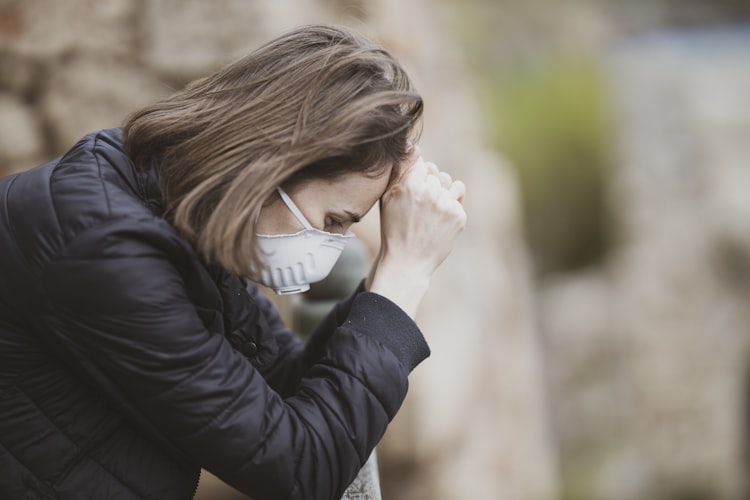We live in undeniably stressful times. Worries over COVID-19, the economy, and how such issues are impacting our lives on a day to day basis has has a significant impact on mental and emotional health for many.
If you have sleep apnea, adding all this worry to your life is going to make it even harder to get a good night’s sleep. While using a CPAP machine can certainly help mitigate the worst effects of sleep apnea, it is also essential that you try to manage your stress.
Learning to destress won’t just help you sleep better — it will make it easier to cope with the “new normal” and face your everyday challenges.
You’re Not Alone if You’re Feeling Stressed Out

Unsurprisingly, the COVID-19 situation has made this even more complex. The Atlantic reports that COVID-19 has negatively impacted the mental health of 56 percent of adults in the United States, with a full one-third saying they are experiencing severe anxiety.
When suffering from anxiety or depression, many people develop the impression that they are completely alone. Now more than ever, you are far from alone if you are feeling heightened stress and anxiety. Don’t hesitate to talk to others or reach out for support if necessary. It could make all the difference for your well-being.
Stress & Sleep Apnea

In fact, a study of healthcare workers in China found that over one-third of those who were involved in the fight against COVID-19 experienced insomnia. As a result of their lack of sleep, they also become more likely to develop anxiety and depression. Interestingly, the study also found that these healthcare workers also experienced sleep apnea alongside their insomnia — even if they hadn’t had sleep apnea in the past.
How stress affects sleep can vary from person to person, and is largely dependent on their ability to handle stress in a healthy manner. In extreme situations when it becomes harder to handle stress, sleep and other areas of one’s life will be negatively affected.
Remember, if your sleep quality gets worse because of stress and anxiety, it will make the emotional challenges associated with stress even harder to deal with. In addition to using a CPAP machine, individuals who have been diagnosed with sleep apnea should take direct action to address their stressors.
How to Destress

WebMD notes that thought management is vital for managing stress: “What we think, how we think, what we expect, and what we tell ourselves often determine how we feel and how well we manage rising stress levels. You can learn to change thought patterns that produce stress. Thoughts to watch out for include those concerning how things should be and those that overgeneralize sets of circumstances (for example, ‘I'm a failure at my whole job because I missed one deadline.’)”
Other basic health habits — particularly eating a balanced diet and exercising — can also help you better handle stress. Exercising helps loosen the muscles and can release endorphins, which serve as a natural mood booster. Participating in aerobic exercise during the day can also make it easier to fall asleep at night.
Finally, don’t be afraid to reach out for help. Sometimes, talking through your worries with a trusted friend or family member can help you reframe problems and view things in a more positive light. If stress and anxiety are significantly interfering with your day-to-day routine, consider scheduling a visit with a mental health professional. Just like you’d visit a doctor for a physical injury, consulting with a mental health professional can provide you with a specific treatment plan that will help you get back on track.
Less Stress, Better Sleep
You can’t control what’s going on in the world. But you can control how you respond to it, and how you emotionally cope with any challenges in your life. By embracing a mindful, positive approach, you will sleep better and enjoy improved well-being.
At Help Medical Supplies, we are here to help you manage your sleep apnea during stressful and easy times. With discounted prices on CPAP and BiPAP machines, helpful CPAP bundles, replacement accessories, and more, our goal is to help you get the medical equipment you need at a price you can afford.
Stressful times will pass. By learning to control your stress and managing your sleep apnea, you will be better able to deal with these challenges and enjoy a healthier future.

